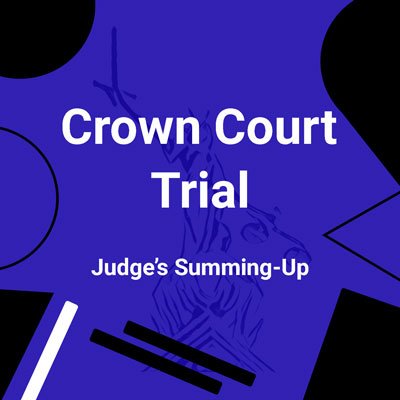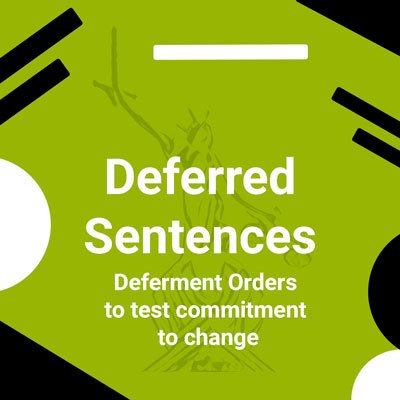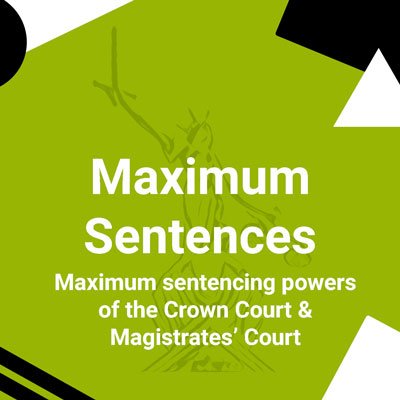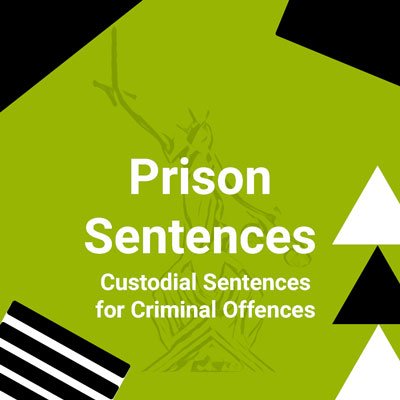Enjoy Membership of Defence-Barrister.co.uk
“As a Defence-Barrister.co.uk member you will gain full access to all exclusive specialist content, easily accessible and ad free”
What are the benefits of membership?
On this website you will find independent, practical information about the criminal court system in England & Wales, written by experienced criminal barrister Chris Kessling and presented in a simple and user-friendly format, making it as valuable for non-lawyers and litigants in person as it is for anyone familiar with crminal trials, sentencing and appeals.
As a Defence-Barrister.co.uk member you will gain full access to all exclusive specialist content from the Members’ Home page, easily accessible and ad free.
Links to additional information, to statutes, court forms, Practice Directions and Criminal Procedure Rules are provided throughout - your guide to navigating the criminal courts in England & Wales from start to finish.
How much does membership cost?
Membership is priced at £4.99 per month (cancel anytime) or you can get 2 months free if you pay annually (equivalent to under 14 pence per day). Membership auto-renews unless you choose to cancel. Use our flexible membership options to have access for as long or as little time as you need.
Access all contents
Members can access all contents from a Members Home Page just like the one below. Once subscribed, all Members Home Page links will become active. For easier navigation from a mobile device, turn your phone on its side for landscape view.
Need Help?
Our handy Subscription Help guide will assist you when you join. Should you wish to cancel at any time, we make that simple too. Keep access for as long or as little time as you need.
Welcome to Defence-Barrister.co.uk/Members
MEMBERS HOME PAGE
Once subscribed, access the Members’ Home Page just like this.
Links below go live from your Members’ Home page once subscribed. Scroll down for full contents.
GETTING STARTED
All Contents A-Z
If you want to look for an item in detail, then look no further. Everything on Defence-Barrister.co.uk is right here in alphabetical order. New items are always being added, so keep checking back for more.
Getting started with Defence-Barrister.co.uk
Start here to discover how to get the most out of Defence-Barrister.co.uk.
Criminal Law and Procedure
A helpful and gentle introduction to the criminal law, and to the rules and procedure governing the criminal courts in England & Wales.
How prosecution decisions are made
How do the prosecution decide to prosecute, or to offer an out-of-court alternative such as a caution?
Which Court will I go to? Magistrates’ Court or Crown Court
Every case starts at the magistrates’ court and this is where the overwhelming majority will stay. This page explains how some cases can move on to the Crown Court, either for sentence or for trial by jury.
PLEADING GUILTY
Pleading Guilty Part 1
On this page, learn more about what it really means to plead guilty, what plea bargaining entails and what it means to be unfit to plead.
Pleading Guilty Part 2
Learn more about how a guilty plea can result in a lower sentence, including in murder cases, and how assisting the prosecution can reduce a sentence.
Pleading Guilty Part 3
If you want to plead guilty but dispute the facts of the offence relied upon by the prosecution, a basis of plea or Newton Hearing can resolve this.
Pleading Guilty Part 4
Discover more about changing plea (including from Guilty to Not Guilty) and the approach taken by the courts to appeals following a plea of guilty.
CROWN COURT TRIAL
Crown Court Trial - Overview
If you are facing trial by jury in the Crown Court, what follows will guide you through what to expect from start to finish.
Crown Court Trial - Jury
From empanelling the jury and challenging jurors to the responsibilities of jurors in a Crown Court trial. All you need to know right here.
Crown Court Trial - Prosecution Case
The prosecution case from start to finish. How does the prosecution prove its case against a defendant? Read more here.
Crown Court Trial - Defence Case
The defence case in a Crown Court trial, including Defence Case Statements, presenting and giving evidence, and questioning by the prosecution.
Crown Court Trial - Summing-Up
Find out how the judge will sum up the facts and instruct the jury on the relevant law before the jury retires to consider its verdict.
Crown Court Trial - Verdict
A verdict can be unanimous or by a majority. In the absence of agreement, a hung jury will be discharged, with the prospect of a retrial.
The Indictment
The indictment in the Crown Court contains the count or counts one or more defendants will face at trial. Read on for details of how an indictment works.
Should I elect trial by jury?
If you are facing an either-way offence, you might have the opportunity to choose jury trial or to stay in the magistrates. Read the pros and cons here.
MAGISTRATES’ COURT TRIAL
Magistrates’ Court Trial - Overview
If you are facing trial in the magistrates’ court, what follows will guide you through what to expect from start to finish.
Magistrates Court Trial - Prosecution Case
The prosecution case in the magistrates’ court from start to finish, including contents and service of the prosecution case and how it will seek to prove it.
Magistrates Court Trial - Defence Case
The defence case in the magistrates’ court, including deciding whether to give evidence, presenting the defence case and questioning by the prosecution.
Magistrates Court Trial - Verdict
Retirement by the magistrates or District Judge, including assistance from the legal adviser. What exactly happens with a guilty or not guilty verdict.
TRIAL APPLICATIONS AND PROCEDURES (Magistrates’ & Crown Court)
Submission of No Case to Answer
Where the prosecution evidence is insufficient to support a conviction, a defence submission of no case to answer may result in a vedict of Not Guilty.
Prosecution Disclosure
The rules on disclosure of unused material are fundamental to a fair system of criminal justice. Read more about the disclosure provisions here.
Defence Disclosure in Criminal Cases
The defence must provide a Defence Case Statement (in the Crown Court) and a list of defence witnesses (in both the magistrates’ and Crown Court).
Good Character
A good character direction has significant value in a Crown Court trial. An imperfect background does not have to be a blemish on a person’s character forever.
Bad Character
Evidence of bad character, if admitted, can be used against a defendant or witness in a number of ways. Discover how bad character applications are made.
Costs
The unsuccessful party can be made to pay the costs, but a successful defendant who pays privately will struggle to recover their costs in full.
WITNESSES & EVIDENCE
Witness Competence and Compellability
Are all witnesses considered competent to give evidence? And can all witnesses be compelled to attend court? The rules are set out here.
Witness Evidence and Questioning
The evidence of witnesses lies at the heart of the criminal justice system. Expert witnesses, perjury and self-incrimination are included here.
Witness Protection and Support
Special Measures, Witness Anonymity Orders, reporting and questioning restrictions and Witness Protection Programmes to help witnesses, and more.
Examination-in-Chief
How witnesses are taken through their evidence, including avoiding ‘leading’ questions and refreshing the memory of a forgetful witness.
Cross-examination
Cross-examination is the opportunity for the opposing side to put its case to a witness and, potentially, to underme their evidence.
Re-examination
When used well, re-examination can be a powerful tool, enabling the party who first called the witness to ask further questions.
Witness Summons
A witness summons can be used to compel attendance at court. Read here about applying, serving, objecting to and disobeying a witness summons.
Hearsay
When a party is unable to get a witness to court, they will meet the hearsay rule. What is hearsay and how can exceptions to the rule be made?
SENTENCING
How Sentencing Works
Understand how sentencing works and how judges decide on what sentence to pass for particular offences in a variety of different circumstances.
My Sentencing Hearing
Discover what actually happens at a sentencing hearing and what to expect, from the prosecution opening to the defence plea in mitigation.
Absolute and Conditional Discharges
Absolute and Conditional Discharges are orders reserved for the least serious cases, where the court chooses not to impose punishment.
Advance Sentence Indications
There are procedures for obtaining an advance indication of your likely sentence. In the Crown Court this is called a Goodyear indication.
Bind Overs
A Bind Over to Keep the Peace is intended to keep a person out of trouble and may be imposed against defendants, even when acquitted, and witnesses.
Cautions & Conditional Cautions
Cautions are formal alternatives to a formal prosecution where a prosecution is not required in the public interest.
Community Orders
A sentence, usually with specific requirements, imposed as an alternative to an immediate or suspended custodial sentence.
Credit for time spent on remand
The rules on deducting time spent in custody before sentence, as well as time spend on a qualifying (tagged) curfew.
Deferred Sentences
Sometimes a judge may be prepared to defer sentence (a Deferment Order) to test a defendant’s commitment to change for the better.
Extended Sentences
Extended licence for defendants assessed as dangerous but for whom a sentence of life imprisonment is not required.
Fines
Fines are the most common magistrates’ court sentence. The fine must reflect the seriousness of the offence and the means of the defendant.
Life Sentences
Life sentences are reserved for the most serious offences. Discover how judges determine the minimum term and read murder sentence examples.
Mandatory Minimum Term Sentences
Judges can be required to pass at least a minimum term, including for third convictions for domestic burglary or Class A Drug Trafficking.
Maximum Sentences
Read about the maximum sentencing powers available in the magistrates’ court, and the far greater powers of sentence in the Crown Court.
Prison Sentences
What is the custody threshold and what are the sentencing options available to the court when the custody threshold is not reached?
Release from custodial sentences
When can release from custody take place at the halfway or the two-thirds stage, or earlier under Home Detention Curfew?
Restraining Orders
Restraining orders can be imposed at sentence for any criminal offence and sometimes even where the defendant is found Not Guilty after trial.
Sentencing Guidelines (Intro)
Explore the step-by-step process of how judges and magistrates use sentencing guidelines to calculate the final sentence.
Sentencing Guidelines - Step 1
The first step is to reach a sentence starting point and sentencing range (minimum to maximum) based on the defendant’s culpability and the harm caused.
Sentencing Guidelines - Step 2
The second step is to adjust the starting point up or down within the sentencing range to take account of aggravating or mitigating circumstances.
Sentencing Guidelines - Step 3
The third and final steps are making any further adjustments, such as a reduction for a guilty plea, to arrive at the final sentence.
Suspended Sentences
A suspended sentence is a lesser alternative to an immediate custodial sentence, but breach is liable to result in its full or partial activation.
APPEAL
Appealing against a Magistrates Court conviction
The automatic right to appeal against your magistrates’ court conviction to the Crown Court within 15 business days of your sentence.
Appealing against a Magistrates Court sentence
You can appeal against a magistrates’ court sentence to the Crown Court within 15 business days of the sentence being passed.
Appeal by way of Case Stated
An appeal based on an alleged error of law by the magistrates’ court (or the Crown Court when hearing an appeal) to the Administrative Court, a specialist court of the King’s Bench Division of the High Court.
Appealing against a Crown Court conviction
Seeking permission to appeal and pursuing an appeal against conviction to the Court of Appeal (Criminal Division), including CCRC referrals.
Appealing against a Crown Court sentence
Seeking permission to appeal and pursuing an appeal against sentence to the Court of Appeal (Criminal Division).
LAWYERS
Barristers and Solicitors
Barristers and solicitors are criminal lawyers who often work closely together on criminal cases, despite often playing very different roles.
Direct Public Access Barristers
Suitably qualified barristers can be instructed direct by members of the public. Helpful advice and information right here.















































































